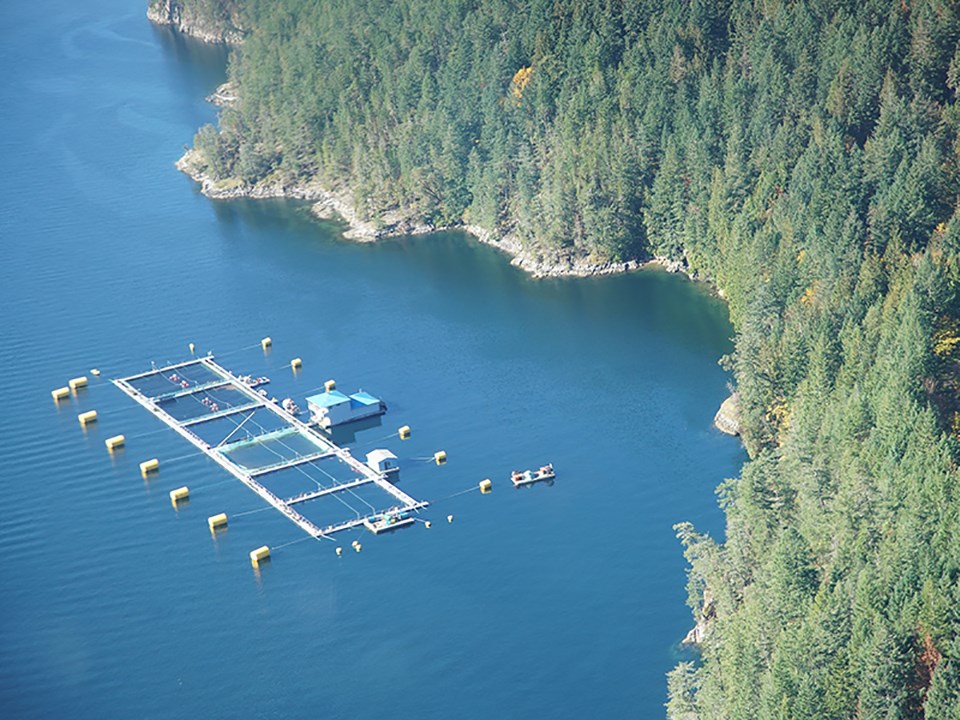Fisheries and Oceans Canada is holding sessions pertaining to the future of open-net salmon farming and qathet Regional District (qRD) Electoral Area A director Jason Lennox has been a participant.
Lennox said he has participated in a local government transition plan engagement, with Fisheries and Oceans Canada reaching out to local governments.
“That’s why those of us on the regional board received an invitation,” said Lennox. “I was the only one on the video conference from our area and I’ll be reporting back to the regional board.
“We are now in phase three of the process and this is centred around information sharing and feedback on the general aquaculture approach on the coast. There are roundtables and bilateral meetings with stakeholders.”
Lennox said most of the representatives on the call were from the coast and there was varied representation from Haida Gwaii on down.
“It was interesting to hear the concerns from other areas,” said Lennox. “The general understanding from people I know is that the federal government is going to eliminate open-net salmon farming and that’s just not the truth right now.
“People should actually know where we are. In a nutshell, what they are trying to do is to work toward minimizing or eliminating open-net salmon farming. That’s an interesting discussion.”
Lennox said from the federal government’s perspective, it is hearing from industry on the severe impact on industry and the workers.
“There is a lot of concern from communities that rely more heavily on aquaculture, and specifically, open-net salmon farms,” said Lennox. “They are really worried about their local economies. They’ve taken hits from forestry that we’ve taken here, with mill closures, plus the slowdowns in salmon fishing.”
Lennox said a lot of people on the teleconference, including himself, are recommending a vast increase in resources for salmonid enhancement for hatcheries and natural salmon. He said there is also a push for making incentives for land-based aquaculture technologies, and worker support and training for people affected by fish farm closures.
Lennox said a First Nations participant on the call pointed out that there was no consultation when the fish farms were put in. Lennox said a lot of people believed that open-net salmon farming would be phased out by 2025.
“There’s been the thought of: are we going backwards or caving into industry?” asked Lennox. “The feds are saying no, they are trying to get the consultation now and by June, be moving towards the plan.”
Plan requires work
Lennox said the qathet region has opened new pen-fish farming on the ocean and lakes, so he mentioned in the call that it was not just oceans that need to be considered. In terms of information sharing, Lennox said the process needs to do much better with the communities and stakeholders in terms of the state of the industry, the technologies, commitments from the government and what is being done.
“The big trick is when they create a technology advisory board that they have all stakeholders, such as sport fishers, commercial fishers, First Nations, et cetera,” said Lennox.
There is much more work to be done to get to a good transition plan, he added.
Lennox encourages people to provide input and pay attention to the process. According the Fisheries and Oceans Canada website, over the next year, the department will undertake a phased engagement approach which will invite First Nations, the aquaculture sector, BC communities, academia and conservation organizations to provide feedback as to what should be included in an open-net-pen transition plan, and to work collaboratively to shape the plan.
This framework provides a proposed approach, including a scope and time frame. Each of the phases of engagement will reflect upon the feedback which has been provided by British Columbians, while setting out additional levels of detail about what a final plan would include. By the end of the next year, a plan will be produced which will clearly define a proposed open-net pen transition for BC’s salmon aquaculture industry, according to the website.
For more information, go to pac.dfo-mpo.gc.ca/consultation/aquaculture/bc-transition-cb/cadre-discussion-framework-eng.html.



